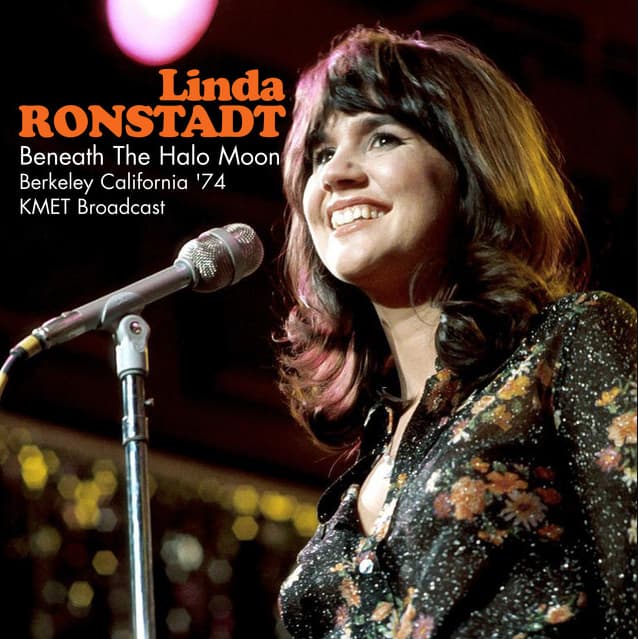
Linda Ronstadt – “Desperado”: A Heartfelt Rendition of Longing and Vulnerability
Linda Ronstadt’s cover of “Desperado” is a tender, soul-stirring interpretation of the Eagles’ classic ballad, which explores themes of isolation, vulnerability, and the yearning for connection. Originally written by Don Henley and Glenn Frey in 1973, “Desperado” became an anthem for those with restless spirits and guarded hearts. When Ronstadt recorded her version for her 1973 album Don’t Cry Now, she transformed the song with her warm, expressive voice, adding a sense of tenderness and empathy that made it one of her most beloved tracks.
The song opens with a gentle, melancholic piano melody that sets a contemplative tone, instantly drawing listeners into a world of quiet introspection. The arrangement is soft and understated, allowing Ronstadt’s voice to shine as the focal point. Her version retains the song’s haunting simplicity, with subtle orchestration that enhances the emotional depth of the lyrics without overwhelming them. The instrumentation creates a sense of space, making the listener feel as if they are alone with the singer, sharing an intimate moment of vulnerability.
Lyrically, “Desperado” tells the story of a lone figure who keeps others at arm’s length, hesitant to trust and unwilling to open up. The lines “Why don’t you come to your senses? / You’ve been out riding fences for so long now” speak to the narrator’s plea for the “desperado” to soften and allow love and companionship into their life. The lyrics paint a picture of someone who has built walls around themselves, afraid of getting hurt yet also longing for connection. This balance of strength and loneliness is universal, resonating with anyone who has struggled with vulnerability.
In Ronstadt’s rendition, the chorus—“Desperado, why don’t you come to your senses?”—is delivered with warmth and empathy, as though she’s offering comfort to a close friend. Her voice has a quiet power, bringing out the song’s emotional weight without overpowering the subtlety of the lyrics. This refrain feels like a gentle reminder, an invitation to let go of the armor and embrace the possibility of love and healing. Ronstadt’s interpretation adds a touch of compassion that transforms the song from a lament into a comforting appeal.
Ronstadt’s vocal performance is the heart of her “Desperado” cover. Her voice is rich and full of warmth, capturing both the sadness and hope in the lyrics. She sings with a delicate restraint, letting the emotion come through naturally rather than forcing it. Her phrasing is nuanced, with slight pauses and a touch of breathiness that enhance the song’s introspective mood. Ronstadt’s voice has a unique ability to convey both strength and vulnerability, making her an ideal interpreter for a song as emotionally complex as “Desperado.”
The musical arrangement in Ronstadt’s version is minimalist yet impactful, featuring piano, soft strings, and subtle percussion. The arrangement complements her voice beautifully, creating a soundscape that is both lush and delicate. The piano carries the melody with a quiet grace, while the strings add a sense of yearning that echoes the lyrics’ themes of loneliness and longing. This restrained approach allows the focus to remain on the song’s emotional core, creating an atmosphere that feels intimate and deeply personal.
Since its release, “Desperado” has been celebrated as one of Linda Ronstadt’s most moving covers. Her interpretation brought a new perspective to the song, highlighting its emotional depth and offering a fresh take on its message of vulnerability and redemption. By recording “Desperado”, Ronstadt not only honored the original by the Eagles but also made it her own, showing her talent for taking a well-loved song and infusing it with new life and emotion. Her version has resonated with audiences for decades, becoming a fan favorite and a staple of her catalog.
“Desperado” continues to be a song that speaks to listeners across generations. Its themes of loneliness, self-protection, and the longing for connection are timeless, and Ronstadt’s version captures these emotions with a grace that makes the song feel both classic and contemporary. Her heartfelt delivery and the subtle orchestration make it a track that listeners return to whenever they need a moment of reflection or a reminder of the power of vulnerability.
In the end, “Desperado” is more than just a song about solitude—it’s a reminder of the importance of letting others in. Linda Ronstadt’s rendition adds a sense of empathy and understanding, turning it into a message of compassion for anyone who has felt the need to shield their heart. Her voice, combined with the song’s gentle arrangement and timeless lyrics, makes “Desperado” a soulful, reflective journey into the complexities of the human heart. For fans of classic ballads and those who appreciate music that touches the soul, Ronstadt’s “Desperado” remains an unforgettable and deeply moving interpretation.